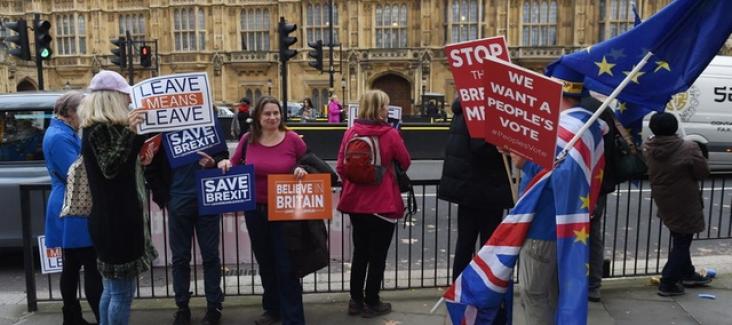So it’s done: on Wednesday, Dominic Raab – Britain’s Brexit negotiator – and his European Union counterpart Michel Barnier closed the books and announced the deal: a 585-page agreement that should ensure that when Europe next switches to summer time on March 31, 2019, the UK will no longer be a full member of the EU.
The following day, the British cabinet approved the draft agreement. As with everything in this historically unique process, however, it came at a high price: not only did chief Brexit negotiator Raab immediately reject his own achievement by resigning, he was soon followed by several other ministers and junior secretaries.
Their discontent, essentially, was that the agreement does not fulfil hopes for a full and clear-cut divorce; instead, Britain will simply be relegated to a form of indirect EU membership, similar to Norway´s status in the European Economic Area (EEA).
Decisions made by the remaining EU-27 will have a direct legal, economic and political impact on the UK, but there will no more voting rights in Brussels for the British.
‘To deliver on the vote of the British people…’
And yet, in an increasingly globalized world, such a halfway scenario seems to be the only viable option left for countries trying to retreat to a time when nation-states were top dogs.
Theresa May knows this. Playing her signature brave face in a bad game, May declared for the hundredth time that, despite the legitimate disappointment of many Brexiteers to the deal, her first task was and remains “to deliver on the vote of the British people” – that is, the popular vote of June 23, 2016, calling for an EU exit.
But if that democratic exercise of two-and-a-half years ago was indeed impressive – it spurred the highest ever electoral turnout in British history – it was also a terrible example of modern direct democracy.
Why? Because it was not actually a ‘referendum’ – a popular vote to decide on a formal decision by a representative authority – but rather a ‘plebiscite’ initiated on narrow political grounds by then UK Prime Minister David Cameron.
Two more aspects made this plebiscite an unfortunate case of “popular vote opportunism”: firstly, the leave vote by the majority of participating citizens had no binding legal impact, but simply amounted to non-binding “advice”. Such a ‘decision’ leaves itself open to all kinds of political jostling and manipulation (just imagine holding ‘advisory’ elections).
And, secondly, there was never a plan, or even an idea, about how to “deliver on the vote”: Cameron ran away, leaving his interior minister and remainer, Theresa May, to take over.
Dutiful but erratic, May has pursued a cheerless race to the bottom ever since, with no understanding whatsoever about what “delivering on the vote” means either.
First, she tried to short-circuit the checks and balances of British politics by holding snap parliamentary elections; she came out worse off when voters deprived her of a parliamentary majority. Then she tried to bypass parliament altogether – and failed again. And so, it will be the British parliament which will have its say on this week’s ‘semi-Brexit’ deal.
No wonder that hard-core nationalist dreamers like former Foreign Minister Boris Johnson are fuming.
Things are no more optimistic seen from the other camp. Johnson’s brother and May’s transport minister, Jo Johnson, quit on November 9, saying that “the Brexit deal offers two options, vassalage or chaos.” For him, the only possible way forward is “another popular vote”.
His declaration was swiftly countered by Downing Street: “the referendum in 2016 was the biggest democratic exercise in this country’s history. We will not under any circumstances have a second referendum. The PM thanks Jo Johnson for his work in government.”
First true Brexit referendum
But in reality, another popular vote on the Brexit agreement would not be a “second referendum” – it would be the first real referendum, for reasons explained above.
And it’s necessary: despite its structural and legal weaknesses, the 2016 plebiscite cannot be reversed by MPs alone.
Parliament is most welcome to deliberate and debate how to implement Brexit. Ultimately, however, it’s time to again make the British people decision makers: by holding a genuine, legally-binding referendum before the end of March.
In general, popular referendums as key components of political decision-making are a well-tested method to legalize and legitimize decisions in a modern direct democracy.
Such referendums can be required by law in many jurisdictions, while others allow citizens themselves to initiate referendums, by gathering signatures ahead of time.
So far, the Brexit process has taken place outside any such legally-established formats. But it’s not too late: with the draft agreement in hand, the UK now has the opportunity of a life-time to fix its dysfunctional democracy with a legally-binding popular vote on a simple question: “do you accept the withdrawal agreement? Yes or no?”.
This article was first published on Swissinfo.ch.

